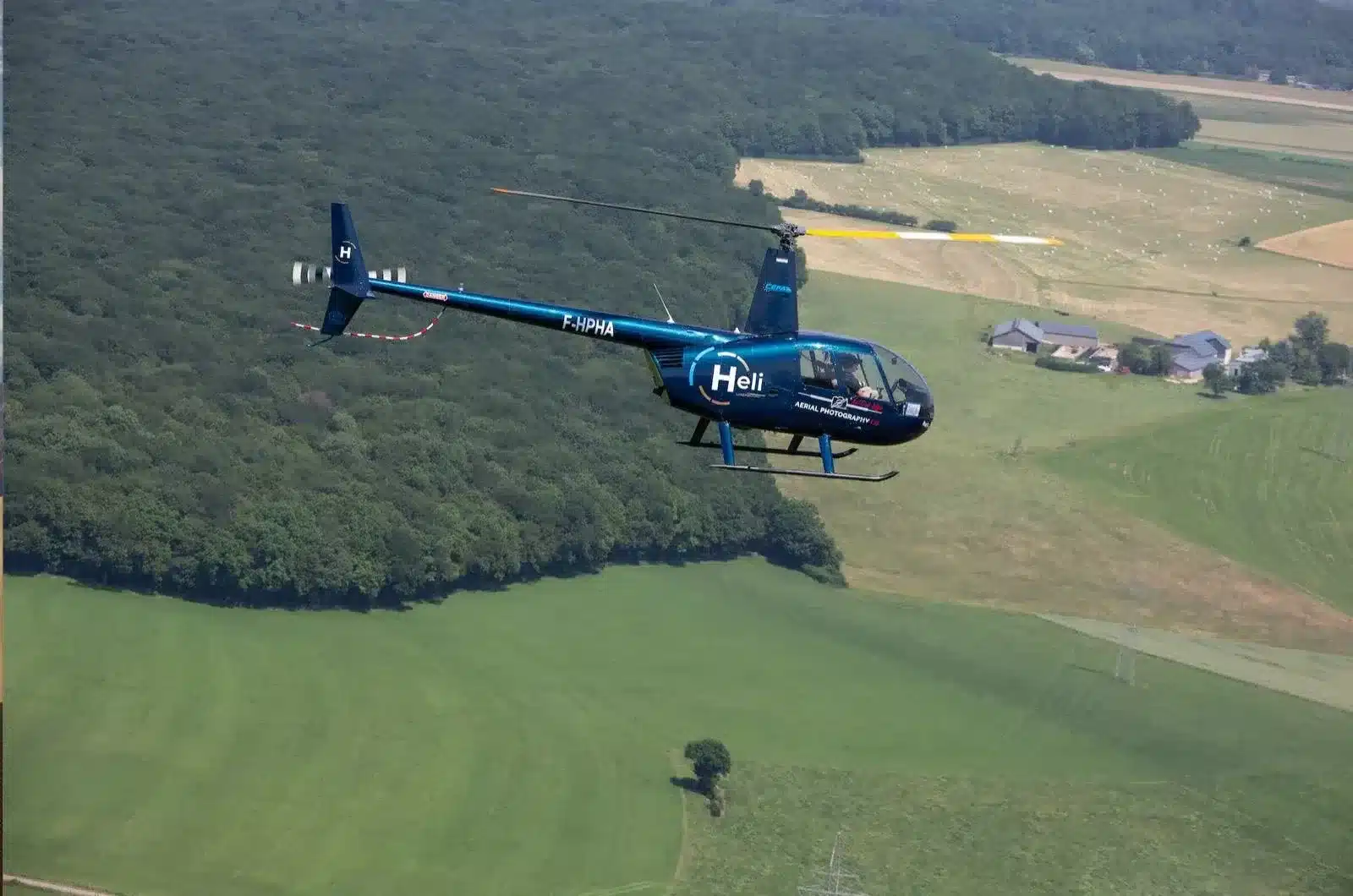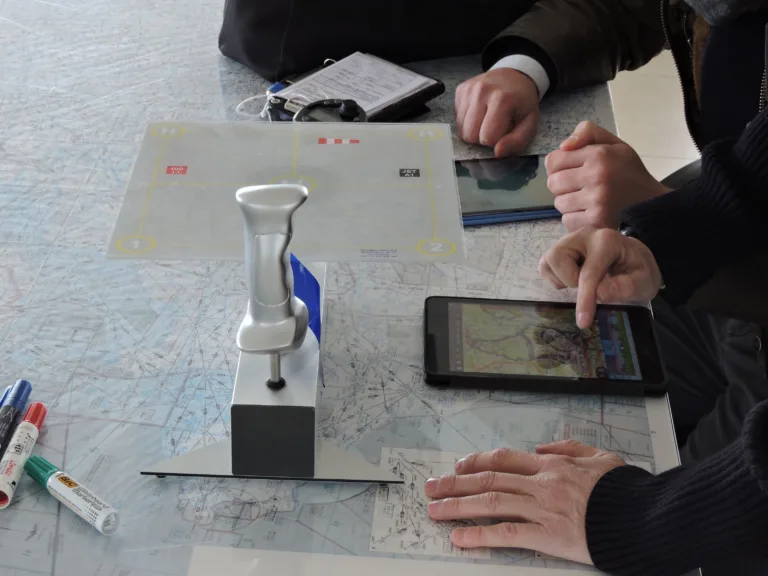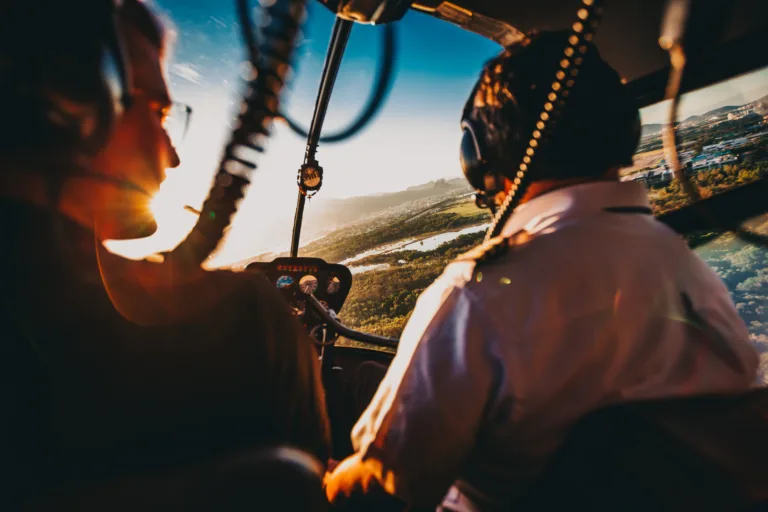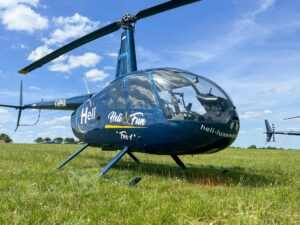
To become a commercial helicopter pilot, you need to go through the training stage. This will enable you to: master an aircraft, know how to plan and prepare a flight, know how to navigate in complete safety, while ensuring the safety of your passengers… These training courses require a financial investment, but also a strong commitment over time. However, before you can earn the precious ‘sesame’ (CPLH or double CPLH), you still have to join a top-class helicopter pilot training centre, and that means passing a selection process before you can join the course. Here’s how the selection process works at the CEFA (Centre Européen de Formation Aéronautique).
Why take a competitive entrance exam?
To become a pilot, it’s not enough just to want to. The complexity and technical demands of the profession require a high level of skill. As part of CPL(H) training, the training centre needs to ensure that candidates complete their training and obtain their licence. There are a number of ways of assessing this, which we’ll look at in this article.
As well as assessing your skills, motivation and ambitions, an entrance exam is crucial because of the financial investment involved in the course. If you don’t have the prerequisites to pass your course with flying colours, you will have invested a lot of money (for a CPLH, from €109,350), resulting in failure and the loss of a substantial investment. For CEFA, this is not an option. Your ambition and the realisation of your dreams must be guaranteed when you walk through the doors of the Centre.
Now you know why the entrance exam is so important for helicopter pilot training.

What criteria are assessed in the entrance exam?
The aim of the entrance exam is to assess candidates’ potential to become helicopter pilots. This includes various observation points such as:
As the course requires a high level of personal investment, candidates must be sufficiently motivated never to give up, resilient in difficult situations, and ambitious enough to be supported and obtain the job they are aiming for on completion of the course. More than just passing a licence, CEFA will give you the opportunity to get interviews with companies in your preferred sector at the end of the course. We will work with you during the course to help you find a job, as our aim is for you to be directly employed at the end of the course. If you have the desire to make your dream come true and go all the way, then you will succeed in this observation!
To prepare a flight plan and fly the helicopter, you’ll need to learn precise mathematical and physical science concepts during your training, which are compulsory to obtain your pilot’s licence. This doesn’t mean that you need to be an engineer to pass the entrance exam, but you do need to be at ease with the sometimes complex calculations that will help you to master the principles of calculating fuel requirements, determining the weight and balance of the aircraft and passengers, and so on. You’ll also need to be at ease with the concepts of physics, particularly in terms of understanding navigation, gravity, lift, meteorology, etc. These concepts will be taught to you during the theoretical training, so it’s essential to have a logical way of thinking and be at ease with scientific subjects before you embark on the training.
To become a private or commercial pilot, you will take the FCL.055 exam, in other words: the aeronautical English exam. To facilitate communication between pilots around the world, a common language with very specific terms has been created. We’ve already written an article on everything you need to know about this part. To guarantee your success at this stage, you must have a minimum TOEIC B2 level. The test will include comprehension, aeronautical vocabulary, oral expression and aeronautical conversation. You will be given the tools you need to practise during the course on our premises, but bear in mind that you will already need to demonstrate a minimum level before you can access the course.
Aeronautics training teaches you to fly perfectly, mastering a vast array of technical, theoretical and practical knowledge, so candidates need to integrate the notions they learn quickly, so as not to be overwhelmed by the sheer quantity of information. This will be reflected in your diligence in learning, but also in your predisposition to quickly understand what is being explained to you. It is this last point that will be observed during the competition.
Becoming a pilot involves a great deal of responsibility, both material and, above all, human. A poorly prepared flight, a bad reflex, poor control of the aircraft, and your life and that of your passengers could be compromised if you don’t react with clear-sightedness. It is therefore essential to observe your level of psychological stability, to ensure that you have good stress management and the ability to react clearly in the event of a problem.
There are many aspects to this competition, all of which will have a major impact on your career as a future pilot. Let’s take a look at how the selection process works, so that you can meet all the criteria.
Tests and assessment at the selection stage
The various tests take place over 2 days, and will assess each of the above points. The first day will assess your technical skills: a maths and physics test, an English test and a flight assessment with an experienced instructor. The second day will be devoted to assessing your psychological profile and defining your career development potential.
Here is a description of the different tests on the first day:
Maths and Physics Test
Candidates will have 1 hour 30 minutes to answer a MCQ test comprising 25 questions. The aim of this test, carried out by a mathematics professional, is to assess your level of mathematical ability. The level of difficulty increases as the test progresses.
Tip: you have around 3 to 4 minutes per question, so take the time to think carefully before answering. Take a deep breath before the test and don’t put yourself under pressure, as this will impair your ability to concentrate and think.
Please note: this test is eliminatory if you obtain an average mark of 8/20 or less.
English test
Candidates will be assessed in two tests, lasting a total of 1 hour.
The first test is a MCQ of 30 questions after listening to an audio tape in English, with an increasing level of difficulty. You will have 30 minutes to answer them, i.e. a total of 1 minute per question.
Finally, the last part involves a 30-minute oral interview with our examiner, to check that you are at ease speaking English, and to confirm that you have a minimum level of B2 in English.
Tip: stay focused throughout the test. The expected level is not bilingual; you simply need to show that you can understand and be understood intelligibly. Prepare for the test by revising your expressions and vocabulary if necessary, and listening to English audio tracks to get your ear used to them before taking the test.
Flight test
After a 15-minute briefing, explaining exactly what is expected of you and the exercises you will be given, you will take part in a 30-minute flight test. This assessment will be carried out on a Robinson 44 (R44) aircraft, and will include practice with various instructions given by the flight instructor. The aim will be to assess your ease of flight, as well as your ability to position yourself in the direction of the air following precise instructions. Your predisposition to integrate and apply instructions quickly will be observed during this test.
Tip: take on board all the information given by the instructor. Listening and stress management are key to passing this assessment. Keep your wits about you and your concentration high, and you’ll do just fine.

This first day will be intense, full of emotion but also very instructive. You’ll be in the company of other enthusiasts, and you’ll form strong bonds during these tests, so you’ll leave feeling confident about your future. Accommodation can be a problem if you are a long way from the selection venue (Reims-Prunay, in the Marne), but it is possible to organise shared accommodation with the other candidates, just let us know in advance if this is a problem.
The second day is devoted to the psychological test, which is described in detail below.
Psychological test
The test will take place over a total of 2 hours, in 2 separate parts. Part 1 is a psycho-technical test taken on a computer, online. This helps you to better understand how your logic is constructed (visual, reflex, logical thinking, etc.). Part 2 is an interview with a member of the centre, to identify your ambition, your motivation and the career development opportunities that CEFA could help you build.
Tip: be yourself. Simply taking part in the entrance exam is proof of motivation in itself.
Place and date of selections
CEFA runs the entrance exam at the Reims-Prunay airfield (LFQA), in the Marne region (45 minutes by TGV from Paris). The dates are scheduled over 2 days, a few months before the start of the course (which takes place in September). Please do not hesitate to contact us to find out when the next exam will take place.
Conclusion
The entrance exam is essential to ensure your success in CPL(H) training. It ensures that you have the potential and essential skills to become a successful helicopter pilot. The selection tests are designed with the sole aim of observing your current level of English, maths and physics, as well as your level of motivation to achieve your dream.
Places on the course are limited to 10 students per year. This is mainly due to the fact that CEFA tailors each course to provide you with a personalised programme, adapted to your ambitions and the sector of activity you are targeting.
Each year, the number of candidates registered for selection varies, so we cannot give you a precise figure. However, if you have the motivation to become a pilot, an interest in scientific subjects and a good command of English, you should have no difficulty in being one of the 10 candidates selected.






1 Comment
Very interesting points you have remarked, regards for putting up.Blog monry